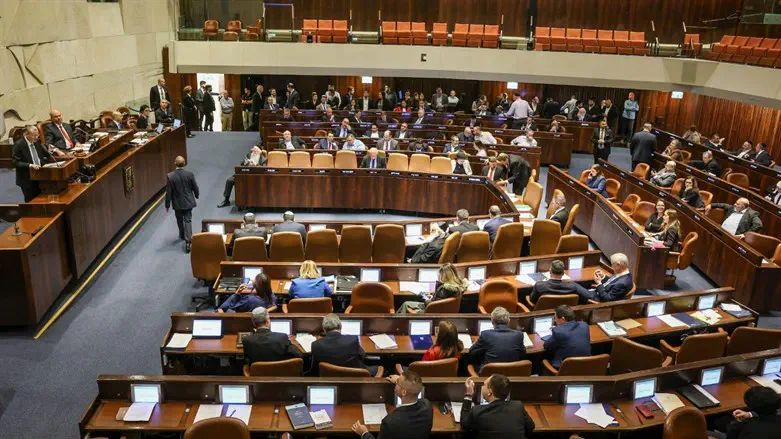
The Knesset on Monday night approved the first reading of the law which includes the Override Clause.
The proposal was approved by a majority of 61 to 52.
The bill states that a repeal of laws, changes or limitation of their validity, will be done only in the Supreme Court with all the judges present, and with the support of 12 judges out of 15.
The bill also stipulates that in the event that the Supreme Court strikes down a law, the Knesset can enact it again through the Override Clause, with a majority of 61 members of the Knesset, without the court being able to strike it down it again.
Yisrael Beytenu chairman MK Avigdor Liberman blasted the approval of the law and wrote on his Twitter account, "Override Clause IN – sharing the burden OUT."
"The passing of the Override Clause is a slap in the face of the IDF soldiers and reserve officers. This is another stage of this crazy government on the way to a deep rift among the people of Israel and splitting it in two. As Gafni said – between those who will go to the army and risk their lives and those who will go to yeshiva," Liberman added.
"While the coalition is busy telling the reservists to go to hell, it promotes ruthless legislation that promotes the refusal of tens of thousands of young people to serve under the protection of the law," Liberman wrote. "We will not allow the sacred value of 'sharing of the burden' and 'the people's army' to be overrun and we will continue to fight to keep the State of Israel Jewish, Zionist and liberal."
Earlier on Monday evening, the Knesset approved the first reading of the “Incapacitation Law”, which would prevent the Attorney General from declaring that a Prime Minister is unfit for office.
61 MKs supported the proposal and 51 opposed it.
The bill stipulates that a Prime Minister can only be declared unfit for office as a result of physical or mental inability to carry out his duties, and only by the Prime Minister himself or by the vote of three-quarters of the members of the Cabinet.
Should the Prime Minister object to putting the decision to the Cabinet, it would go to the Knesset, where at least 90 MKs would have to approve the move.
